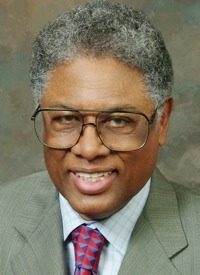
It is hard to understand politics if you are hung up on reality. Politicians leave reality to others. What matters in politics is what you can get the voters to believe, whether it bears any resemblance to reality or not. Not only among politicians, but also among much of the media, and even among some of the public, the quest is not for truth about reality but for talking points that fit a vision or advance an agenda. Some seem to see it as a personal contest about who is best at fencing with words.
The current controversy over whether to deal with our massive national debt by cutting spending, or whether instead to raise tax rates on "the rich," is a classic example of talking points versus reality.
Most of those who favor simply raising tax rates on "the rich" — or who say that we cannot afford to allow the Bush "tax cuts for the rich" to continue — show not the slightest interest in the history of what has actually happened when tax rates were raised to high levels on "the rich," as compared to what has actually happened when there have been "tax cuts for the rich."
As far as such people are concerned, those questions have already been settled by their talking points. Why confuse the issue by digging into empirical evidence about what has actually happened when one policy or the other was followed?
The political battles about whether to have high tax rates on people in high income brackets or to instead have "tax cuts for the rich" have been fought out in at least four different administrations in the 20th century — under Presidents Calvin Coolidge, John F. Kennedy, Ronald Reagan and George W. Bush.
The empirical facts are there, but they mean nothing if people don't look at them, and instead rely on talking points.
The first time this political battle was fought, during the Coolidge administration, the tax-cutters won. The data show that "the rich" supplied less tax revenue to the government when the top income tax rate was 73 percent in 1921 than they supplied after the income tax rate was reduced to 24 percent in 1925.
Because high tax rates can easily be avoided, both then and now, "the rich" were much less affected by high tax rates than was the economy and the people who were looking for jobs. After the Coolidge tax cuts, the increased economic activity led to unemployment rates that ranged from a high of 4.2 percent to a low of 1.8 percent.
But that is only a fact about reality — and, for many, reality has no such appeal as talking points.
The same preference for talking points, and the same lack of interest in digging into the facts about realities, prevails today in discussions of whether to have a government-controlled medical system.
Since there are various countries, such as Canada and Britain, that have the kind of government-controlled medical systems that some Americans advocate, you might think that there would be great interest in the quality of medical care in these countries.
The data are readily available as to how many weeks or months people have to wait to see a primary care physician in such countries, and how many additional weeks or months they have to wait after they are referred to a surgeon or other specialist. There are data on how often their governments allow patients to receive the latest pharmaceutical drugs, as compared to how often Americans use such advanced medications.
But supporters of government medical care show virtually no interest in such realities. Their big talking point is that the life expectancy in the United States is not as long as in those other countries. End of discussion, as far as they are concerned.
They have no interest in the reality that medical care has much less effect on death rates from homicide, obesity, and narcotics addiction than it has on death rates from cancer or other conditions that doctors can do something about. Americans survive various cancers better than people anywhere else. Americans also get to see doctors much sooner for medical treatment in general.
Talking points trump reality in political discussions of many other issues, from gun control to rent control. Reality simply does not have the pizzazz of clever talking points.
Related article: Politics Versus Reality, Part II
To find out more about Thomas Sowell and read features by other Creators Syndicate columnists and cartoonists, visit the Creators Syndicate Web page at www.creators.com. Thomas Sowell is a senior fellow at the Hoover Institution, Stanford University, Stanford, CA 94305. His website is www.tsowell.com.
COPYRIGHT 2011 CREATORS.COM


